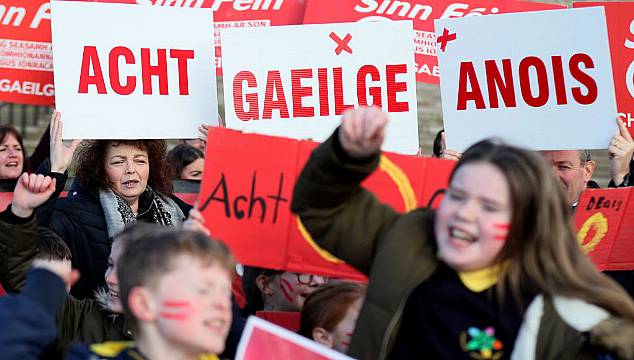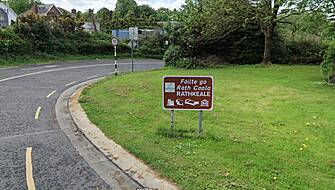The UK government will be introducing legislation around culture, identity and language for Northern Ireland if progress is not made in Stormont, a minister has said.
As MPs held a debate on the Irish diaspora in Britain to mark St Patrick’s Day, the government was asked to give an update on the future of an Irish language act for Northern Ireland.
Government minister Maria Caulfield, who spoke about being a second-generation Irish, told the Commons that the government’s preference is that the Northern Ireland executive brings forward the legislation.
However, she stressed that if progress is not made, the government has already been taking the necessary steps to introduce the act in the Westminster parliament.
SNP MP Martin Docherty-Hughes (West Dunbartonshire) asked: “The complexity and history of these islands – and it is appropriate we mention it today – is an opportunity to build on the strength and diversity and the opportunity for governments across these islands to work together and that was noted in the St Andrews Agreement.
“I just wonder if the minister, in summing up, would make any notification or give the House an idea about progress on an Irish language act or in terms of the new deal, in terms of opportunities, to support and promote the Irish language in Northern Ireland?”
Ms Caulfield replied: “So, the government’s preference is that the Northern Ireland executive brings forward the legislation in the Northern Ireland Assembly, but in the absence of any progress on that, the government has been taking the necessary steps to introduce the legislation in parliament.
“And the legislation will faithfully deliver what was agreed in the New Decade New Approach (NDNA) Agreement on commitments on identity, language and culture, and to provide for the status of the Irish language and the development of the Ulster Scots and the artists of British tradition, and create the two commissioners and an Office of Identity and Culture Expression as negotiated with the executives.”
She added: “So, we want the Northern Ireland executive to do that, but the government is committed to introduce that if progress isn’t being made.”
The debate also saw British-Irish shadow minister Conor McGinn opening and closing his speech in Irish.
The MP for St Helens North added: “Where previously there was suspicion and mistrust, today there are friendship and co-operation between the United Kingdom and Ireland. There is no longer any contradiction in being Irish and British.
“I’m having feelings of loyalty and affinity to both countries. The contribution made by the Irish in Britain to society here has helped make that possible. It is valued and respected and has helped to make this country the great nation that is.”







